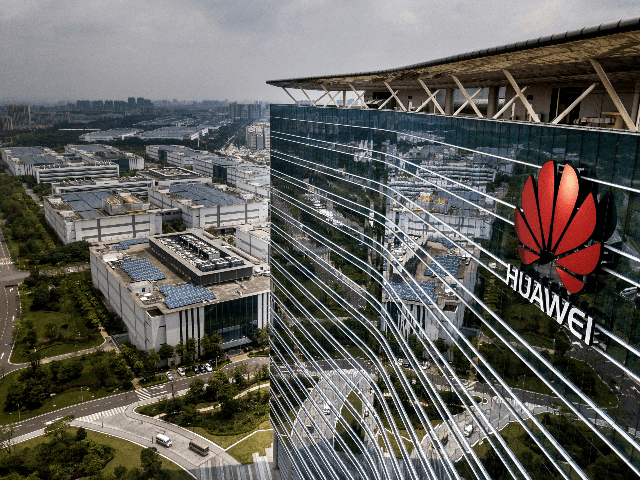The Chinese government reacted with anger on Tuesday to allegations of technology theft against its leading telecom company Huawei, while company representatives categorically denied the charges and accused the U.S. government of attempting to sabotage its business.
The Wall Street Journal reported last Thursday that prosecutors are investigating charges of Huawei “stealing intellectual property from multiple people and companies over several years, as well as how the company went about recruiting employees from competitors.”
The most recent complaint against Huawei came from a Portuguese inventor named Rui Pedro Oliveira, who accused the company of stealing his design for a smartphone camera. Oliveira claimed Huawei’s EnVizion360 smartphone camera, which the company said was developed entirely in-house, was actually based on his stolen technology.
Huawei issued a statement categorically denying Oliveira’s accusations and accused him of trying to shake the corporation down by threatening to “go to the media and exert pressure through political channels” unless he was paid “an extortionate amount of money.”
Huawei noted it filed a civil complaint against Oliveira in March 2019 but he delayed the court proceedings by refusing to accept the summons.
“It’s clear that Mr. Oliveira is taking advantage of the current geopolitical situation. He is pushing a false narrative through the media in an attempt to capitalize on a dispute. This type of behavior should not be encouraged, nor should it be considered rational justification for a criminal investigation by the U.S. Department of Justice,” the company statement said.
The statement went further and attacked the U.S. government for waging a “malign, concerted effort” to “discredit Huawei and curb its leadership position in the industry,” using everything from police harassment of Huawei employees to selective investigations and bans on its business activities.
“For the past several months, the US government has been leveraging its political and diplomatic influence to lobby other governments to ban Huawei equipment. Furthermore, it has been using every tool at its disposal – including both judicial and administrative powers, as well as a host of other unscrupulous means – to disrupt the normal business operations of Huawei and its partners,” the company statement charged.
Chinese Foreign Ministry spokesman Geng Shuang alluded to the Oliveira case, and other disputes between Huawei and the Justice Department, in a statement on Tuesday slamming the U.S. and Poland for signing an agreement that was seen as an effort to freeze Huawei out of the Polish 5G networking market.
From China’s state-run Global Times:
Geng noted that government leaders of Poland have made it clear in the past that Poland would treat all Chinese enterprises there fairly, and wouldn’t take discriminative measures against any specific country or company. “We hope that Poland can keep its promise.”
Geng also noted that the US government has abused national power to crack down on Chinese companies without providing any evidence. “This action is neither honorable nor ethical. We suggest that the US not overestimate its abilities of cooking up stories or underestimate others’ judging abilities,” Geng said.
Another Chinese state media outlet, China Daily, published an op-ed on Tuesday mocking the entire notion of technology theft and claiming China has never engaged in it. This bit of legal and linguistic acrobatics was accomplished by insisting China was making normal, fair, and honorable business deals with foreign companies that were forced to surrender their technology as the price of doing business in China. According to China Daily:
It is critically important to make a clear distinction between commercial deals between foreign companies and their Chinese business partners, and the acts of the Chinese government. While commercial contracts are based on agreements between foreign and Chinese enterprises, “forced transfer of technology” is related to the Chinese government. It is therefore ridiculous to regard the complaints against Chinese companies as “forced technology transfers”.
As for joint ventures in China, foreign businesses are free to negotiate the terms of the contract with their Chinese counterparts. Either party can walk away if it is not happy with the terms proposed by its negotiating counterpart. Two parties enter into a contract at their own will, based on their respective calculation of the cost and benefit of their participation in a business venture. As part of a contractual relationship, technology transfer is all about meeting one’s obligations under the contract. It is not “forced.”
The China Daily piece went on to congratulate foreign companies for their “excellent business sense” in granting China’s demands to hand over their proprietary information as an “investment” in the lucrative, tightly controlled Chinese market. If foreign companies refused to transfer their technologies to Chinese partners, “choosy” Chinese customers might decide they failed to “put their best foot forward” and take their business elsewhere.
“Therefore, it is the market and market competition that make it imperative for foreign companies to transfer technology,” the op-ed concluded.

COMMENTS
Please let us know if you're having issues with commenting.